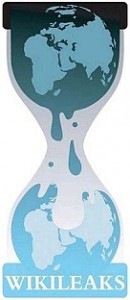 “Now, ultimately, this issue isn’t just about information freedom; it is about what kind of world we want and what kind of world we will inhabit. It’s about whether we live on a planet with one internet, one global community, and a common body of knowledge that benefits and unites us all, or a fragmented planet in which access to information and opportunity is dependent on where you live and the whims of censors.” – Hillary Clinton, 21st January 2010.
“Now, ultimately, this issue isn’t just about information freedom; it is about what kind of world we want and what kind of world we will inhabit. It’s about whether we live on a planet with one internet, one global community, and a common body of knowledge that benefits and unites us all, or a fragmented planet in which access to information and opportunity is dependent on where you live and the whims of censors.” – Hillary Clinton, 21st January 2010.
My how times have changed, eh Ms. Clinton?
I doubt that there is anybody reading this blog that isn’t already aware of the WikiLeaks juggernaut that continues to gain steam both in the press and in the reaction from various governments around the world. With each passing day we are being provided with more information showing all of us just how government bodies work, and perhaps unsurprisingly the amount of underhanded activity that takes place.
What is also becoming more clear with each passing day is just how much effort is being placed into bringing the site down.
Emerging over the past week is a clearly co-ordinated attempt to remove WikiLeaks from the internet, and even to end its existence as an organisation. So, what I wanted to do with the discussion this time is look at whether or not WikiLeaks can actually be shut down – and what this very serious precedent might set for the future of internet neutrality.
I don’t want to get too bogged down in discussions of whether or not the ‘scandal’ surrounding WikiLeaks is deserved. There are many naysayers (as there always are with any kind of large game-changing event of this nature) that will happily dismiss the leak of 250,000 cables as irrelevant and uninteresting. To be honest, I don’t particularly even want to take part in such a discussion. Except to make two statements:
1) WikiLeaks is currently being used as a test-case for just how much ideological freedom the internet possesses and how easily that freedom can or cannot be circumvented.
2) It is kind of disheartening to see just how jaded some people have become in regards to true betrayals of trust perpetrated by those who are supposed to represent the common good.
With that said, let’s survey the recent week in the fascinating struggle to keep us all from viewing WikiLeaks and its recent release:
A massive Distributed Denial of Service (DDoS) attack takes place from an unknown source (often linked to a Lone Wolf operator known as th3j35t3r – ‘The Jester’). This amounts to essentially flooding the servers that WikiLeaks resides upon with a massive amount of data requests in order to clog to internet pipelines (estimated at up to 10Gb/sec); forcing the site to become unavailable for various periods of time. Despite DDoS attacks clearly being illegal under various jurisdictions such as the UK and Sweden (unlike WikiLeaks), no attempt is made to condemn or discover the source of the attacks.
Calls from various right-wing fronts of the US Government to remove WikiLeaks from accessing any kind of internet services – most notably from Senator Joe Lieberman and Sarah Palin.
WikiLeaks moves to the Amazon cloud service in order to scale up according to how strong the DDoS attacks are coming in. Amazon soon after drops WikiLeaks, citing a breach in its Terms of Service as reason.
everyDNS.com drops WikiLeaks from its Domain Name Server service, thereby removing the ability for people to access the site through a normal web address (i.e. http://www.wikileaks.org). The site can still be accessed directly through one of its IP addresses, and a few days later it moves its DNS capabilities to Switzerland.
The French servers that were hosting some of the leaked material mysteriously go offline, coinciding quite neatly with calls from people within the French government to remove any assistance for the organisation. The material is quickly brought back online via The Pirate Party in Sweden, and subsequently a French court declines to force the permanent removal from French servers.
PayPal freezes the WikiLeaks donation account, taking hostage an amount of roughly US$60,000. The banking arm of the Swiss postal service, Postfinance, quickly follows suit by cancelling Assange’s account – which has since prompted a DDoS backlash in its own right. In a seemingly unrelated postal incident – the Melbourne based post-office box for WikiLeaks will face closure (the number 4080 will never be the same again).
Mastercard and Visa both remove their support for their customers who wish to make donations to the various WikiLeaks funds – citing again Terms of Service breaches and ongoing investigations into the legality of the organisation. It should be noted that Mastercard at least still enables people to donate to white supremacy causes such as the Ku Klux Klan. Facebook and Twitter won’t join the lynch mob until true evidence of law-breaking is proven – showing that innocent until proven guilty can thankfully still apply.
Julian Assange gives himself up to authorities following an Interpol request for his custody via Sweden for unrelated allegations of sexual misconduct. He is quickly arrested and a few hours later brought to court in which he is refused bail and is currently being held in a remand prison in the UK.
The US government has outright stated that it is trying to find a way to charge Assange through its Espionage Act; Senator Joe Lieberman also goes on record stating that the New York Times should also be investigated for reporting on the leaks. A press conference with Barack Obama goes by without a single question being asked about the affair…
So, that’s most of the story so far; and we can be assured that there is yet still much to come in this struggle to keep WikiLeaks available to those who wish to view the material they have published. What is interesting to watch is just how desperate many powerful people are to see the site be taken offline, and even more interestingly just how futile their attempts are proving to be.
Can WikiLeaks be shut down for good? All things point to this never being able to occur. Firstly, the site and its content has already been mirrored over 1,000 times; covering pretty much every jurisdiction on the planet. A number of news outlets hold in their possession the complete files and can release findings at their leisure (and the Guardian newspaper from the UK should be commended for its stellar and continued coverage); and there’s also the fact that a few hundred thousand people have downloaded the archive in encrypted (and therefore inaccessible) form via bit.torrent. All of this is even before we begin discussing other whistleblowing websites that have existed for many years, and new ones that are preparing to launch as all of this takes place.
To top it all off, an encrypted insurance file allegedly containing numerous more leaks and sensitive material of an unknown nature has been disseminated amongst tens of thousands of people in the case that anything might occur to Julian Assange (such as an unfortunate ‘accident’) or WikiLeaks as a whole. All that is required is an encryption key to be released and I fear the world’s media outlets might implode with information overload!
WikiLeaks, at least when it comes to the totality of the material they have in their possession as of this moment, is not going anywhere – ever. The people behind it are technically savvy enough to have ensured they remain one step ahead of those trying to silence them. Whether or not they will be able to continue to release future leaks of this magnitude (such as the alleged leaks covering a major US bank) is yet to be seen. However, undoubtedly somebody will else will just step in or the organisation will change form.
Overall, this is actually a wonderful testament to the true power of internet neutrality and the ability for information to remain available no matter who wants to censor it. What we have here is the first test case for global freedom of information – truly what we are seeing here is the power of the people over government in its full glory.
Now, I’d like to go on record and state that I’m definitely not advocating that the internet should just be some kind of Wild West (an appropriately cynical historical analogy if ever there was one) where any kind of activity, criminal or not, is allowed free reign. But clearly there is an issue of public accountability and transparency at hand here – the information being fought over is already changing the global stage in immeasurable ways, and there is more than enough support for it around the world to put forward a very solid case that it should not be allowed to be censored (if democracy is what we really want here).
What it really comes down to is that it has yet to be established that WikiLeaks have broken any laws – and therefore the constant and sustained harassment and persecution of the organisation should be viewed very dimly indeed by people concerned with human liberty and a global freedom of speech.
Apparently, Hillary Clinton and the US Government subscribed to such a world-view less than a year ago…
Since this is a discussion, I’m going to leave further comment until we hear from some of you. So, what do you think? Can WikiLeaks be shut down for good? If so, should it be shut down? What does this mean for the future of the internet? For the integrity of investigative journalism? For the future of freedom of speech? Can the US still host World Press Freedom Day in 2011 with a straight face? I look forward to your responses.




